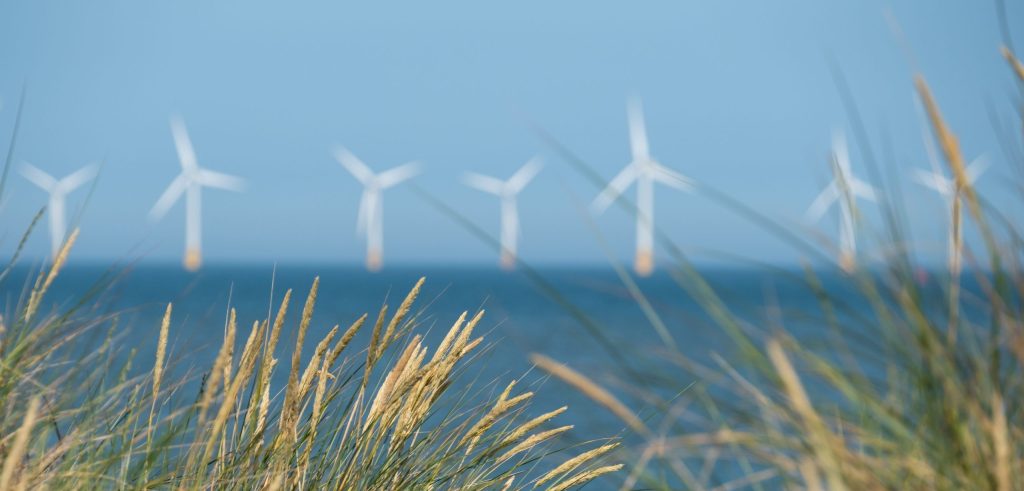Opportunities and Challenges for Offshore Wind Development in NC
May 10, 2023
The UNC Cleantech Summit is an annual event that brings together experts and stakeholders from the clean technology and sustainability sectors to discuss the latest trends and innovations in these fields. As part of this year’s summit, I had the opportunity to speak with Ethan Beaulieu, North Carolina Program Associate at Southeastern Wind Coalition (SEWC), about North Carolina’s budding offshore wind industry. During our conversation, Beaulieu highlighted some opportunities and challenges facing North Carolina’s offshore wind industry.
According to Beaulieu, there are several promising opportunities for offshore wind development in North Carolina. First, he highlighted the state’s carbon plan, which he sees as an opportunity to signal that North Carolina is committed to moving forward with offshore wind development. He explained that Duke Energy is conducting a levelized cost of energy (LCOE) evaluation for the Wilmington Wind Energy Areas (WEAs) and Kitty Hawk, with findings set to be released in September. This evaluation will help to determine the potential for offshore wind energy in the state and may pave the way for additional development opportunities.
Another significant opportunity that Beaulieu identified is the availability of investment and production tax credits. These tax credits can help to offset the high costs of offshore wind development, making it more financially feasible for companies to invest in these projects.
However, Beaulieu also noted that there is some uncertainty surrounding these tax credits, particularly around the language related to prevailing/fair wages and apprenticeship programs. He explained that the timing of these training programs is delicate, and that picking through the details of the language can take time– this uncertainty can prevent investments from moving forward.
Another challenge he identified is that the utilities commission is focused on least cost, rather than on the overall benefits of offshore wind development. This means that capital-intensive infrastructure costs are often a major barrier to moving forward with offshore wind projects.
Despite the challenges facing the offshore wind industry in North Carolina, Beaulieu remains optimistic about the potential for growth and development in this sector. He believes that there is significant potential for offshore wind in the state and that the industry can help to drive economic growth and job creation.
The offshore wind industry in North Carolina has both promising opportunities and significant challenges. The state has the potential to become a major player in the industry with the help of key stakeholders, such as the state government, utility companies, and private investors. However, there is still work to be done to overcome the challenges facing the industry.
The UNC Cleantech Summit provides a platform for professionals like Ethan Beaulieu to share their insights and experiences with stakeholders from across the industry, as well as students looking to get their foot into the space. It serves as a valuable opportunity for collaboration, learning, and growth within the cleantech community. I hope these highlights from Ethan’s interview have shed some light on the current state of offshore wind development in North Carolina.
I look forward to seeing how the industry progresses in the coming years and to the continued conversations on this topic, among many others, at next year’s UNC Cleantech Summit on March 21 – 22, 2024.
About the Author
This article was written by Teddy Popkin, a Junior majoring in Economics & minoring in Sustainability Studies & French. Connect with him on Linkedin.
